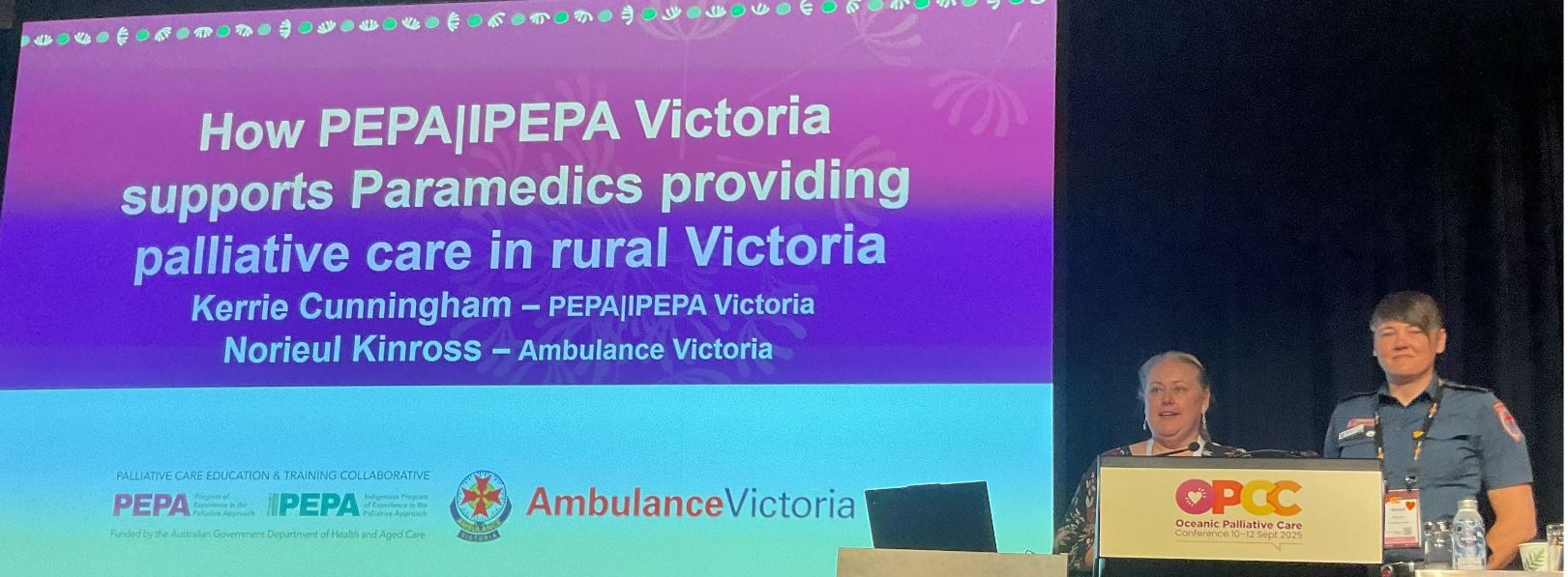At the recent Oceanic Palliative Care Conference, PEPA|IPEPA Victoria proudly presented an impactful collaboration with Ambulance Victoria, highlighting how targeted education is equipping paramedics to deliver compassionate, informed care to people on a palliative journey.

Presenting at OPCC, Brisbane (L-R) Kerrie Cunningham, PEPA/IPEPA Victoria and Norieul Kinross, Ambulance Victoria
Recognising a gap in palliative care knowledge across its operational and communications workforce, Ambulance Victoria turned to its established relationship with PEPA/iPEPA Victoria (funded by the Australian Government Department of Health and Aged Care) to develop a meaningful solution.
Together, we co-designed a comprehensive education program that adapted PEPA|IPEPA’s interactive online learning modules to suit the unique needs of paramedics working in the Victorian context. The modules featured real-world case reviews, tailored resources, clinical video content, and insights from palliative care experts—ensuring relevance to frontline practice.
The reach and impact have been significant:
- Over 5,000 Ambulance Victoria staff have completed the online education
- 16 Paramedic Community Support Coordinators undertook PEPA clinical placements
- Participants reported increased confidence, knowledge, and compassion in providing end-of-life care.
One experienced MICA paramedic reflected:
"I think it was excellent... End-of-life care is an important part of our work as paramedics, and I don't think we have had enough training about it in the past. As a paramedic for over 30 years, I have found caring for people approaching death, and caring for families after losing a loved one, some of the most moving and rewarding experiences of my career."
This iniative has extended well beyond metro areas. In rural and remote regions - where access to specialist palliative care services remains limited - paramedics are now better prepared to provide high-quality palliative support, helping people remain in their homes and communities, in line with their wishes.
This presentation not only showcased a successful educational intervention but also demonstrated how scalable, cross-sector partnerships can create sustainable palliative care solutions across Victoria. There is now strong potential to adapt this model to other health care workforces, further strengthening the system-side capacity to support people living with life-limiting illness.
As we continue to listen, connect, and transform care, this project stands as a testament to what is possible when education, innovation, and collaboration come together with a shared purpose.
For further information please contact:
Kerrie Cunningham
Nurse Educator PEPA (Vic)
PEPA@svha.org.au